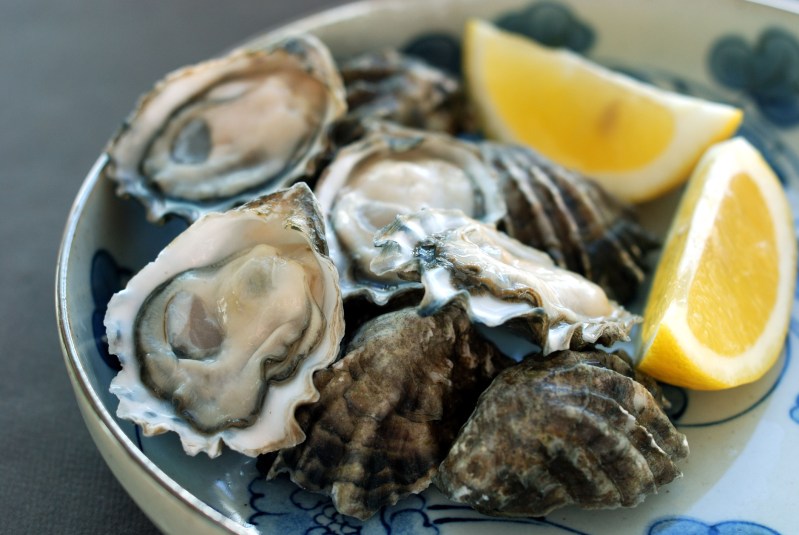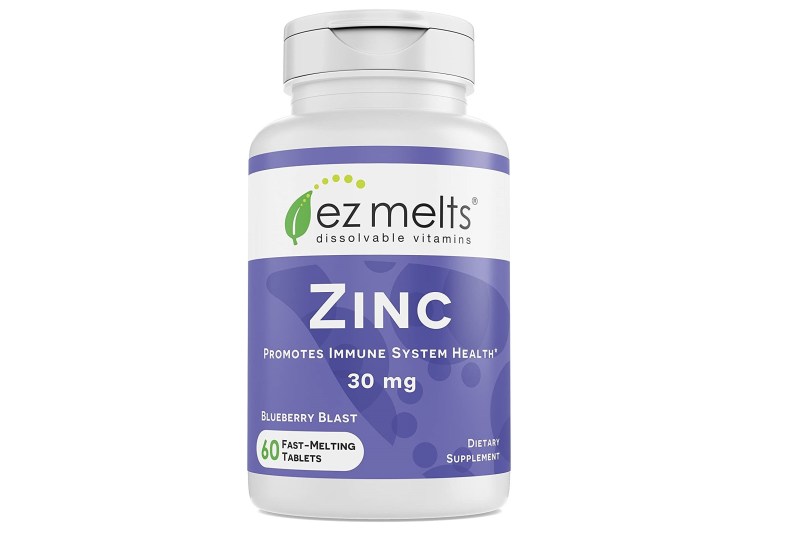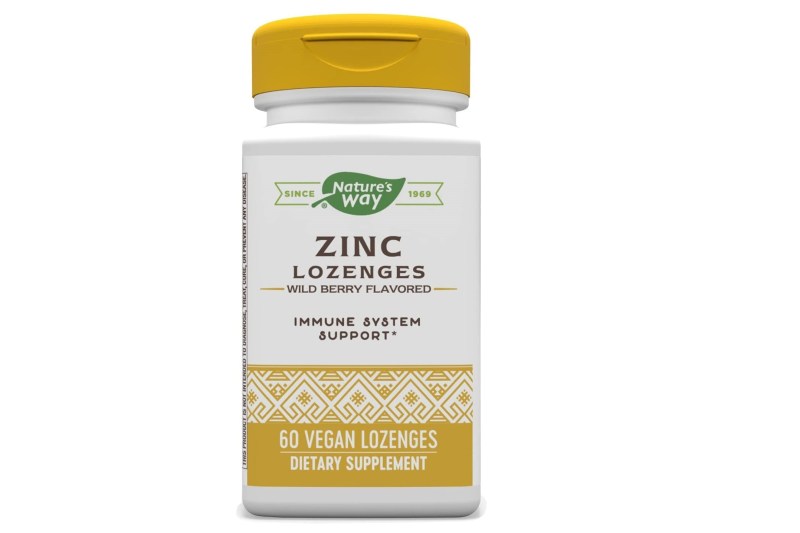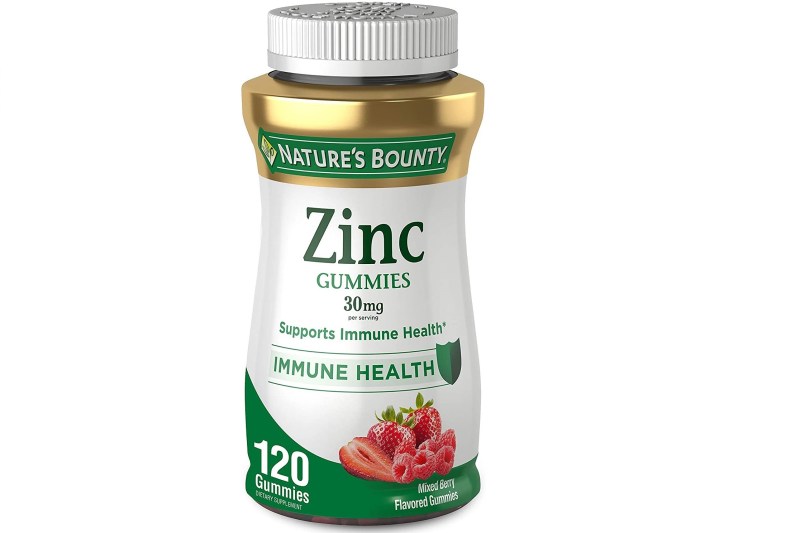
If you’ve ever found yourself scanning the cold and flu support products in your local pharmacy when you suddenly notice the dreadful, yet familiar, scratchy throat signaling an impending cold, you may have noticed zinc lozenges and other zinc-infused immune support products amidst all of the vitamin C supplements. Although vitamin C is usually the first line of defense people turn to in order to support their immune system and fend off colds and viruses, zinc is also an essential micronutrient that can help keep your immune defenses robust.
Zinc has numerous important physiological roles in the body in addition to strengthening the immune system and protecting the body against pathogens and illnesses. As an essential mineral, zinc must be consumed in the diet or through supplementation because the body cannot produce it on its own. Below, we share the benefits and functions of zinc, signs of deficiency and excessive intake, and the best foods to eat to provide the zinc your body needs to fortify your immune system and keep you healthy all winter long.
Health Benefits of Zinc
Zinc plays an essential role in a variety of functions in the body. The following are some of the primary health benefits of zinc:
- Production of Enzymes: Zinc plays a role in the production of more than 300 different enzymes in the body. Enzymes, which are a class of biological proteins, help catalyze vital chemical reactions. Therefore, having sufficient zinc availability ensures that all of the necessary enzymes involved in facilitating key reactions in the body are adequately abundant and available.
- Improving the Quality of Sleep: If you find yourself tossing and turning at night or looking for the best foods to help you sleep, consider adding dietary sources of zinc to your pre-bed routine. Research shows that oral zinc supplements can improve the quality and quantity of sleep, which is possibly why oysters—which contain both zinc and melatonin—are one of the best foods for sleep.
- Supporting Optimal Immune Function: Studies have demonstrated that even mild to moderate zinc deficiency can impair the function of macrophages and neutrophils, two types of cells vital to supporting the immune system. As such, inadequate zinc intake has been found to suppress the immune system and increase susceptibility to infections and illnesses. Furthermore, zinc is required to produce and activate T-lymphocytes.
- Aiding Wound Healing: Zinc plays an integral role in tissue healing following wounds, cuts, and burns. Zinc helps maintain healthy mucosal membranes and increases cell turnover and repair.
- Reducing Oxidative Damage: Zinc is an antioxidant, acting as a free radical scavenger to reduce oxidative damage. For this reason, zinc can help reduce the risk of certain chronic diseases like cardiovascular disease.
- Reducing the Risk of Macular Degeneration: Age-related eyesight problems such as macular degeneration can be thwarted by high dietary levels of zinc.
- Expediting Recovery from Colds: Zinc lozenges have been shown to shorten the duration of colds.
- Optimizing Fertility: Deficiencies in zinc are associated with infertility and hormonal imbalances.
Signs of Zinc Deficiency and Overload
The Recommended Daily Allowance (RDA) of zinc for adult males is 11 mg (9 mg for adult females). The RDA refers to the daily level of intake of the nutrient sufficient to meet the nutrient requirements of 97%–98% of healthy individuals. Zinc deficiency can cause stunted growth in children and fertility and hormonal disruptions, such as impotence, in adults. Additional signs included depressed immunity, hair loss, appetite changes, diarrhea, and poor wound healing.
It is uncommon to have a chronically excessive intake of zinc, though if you are experiencing headaches, nausea, loss of appetite, and diarrhea and tend to eat a lot of foods high in zinc, you may want to reduce your intake or consult your physician. Long-term zinc overload can interfere with the absorption of copper and iron.
Best Food Sources Of Zinc

The body cannot produce zinc endogenously which means it must be consumed through the diet or taken in supplements such as daily multivitamin and mineral supplements. Foods that are highest in zinc tend to be animal products, with shellfish, meat, and poultry topping the list. For example, six oysters contain over four times the minimum recommended daily intake of zinc, with 52 mg. A 5-ounce portion of chuck steak contains 15 mg (140% DV) of zinc and a roasted thigh and leg of chicken contain 5 mg. Lean pork chops are another good option for omnivores, as each 6-ounce pork chop contains 4 mg (36% DV) of zinc.
Although animal sources contain the highest concentrations of zinc, there are also vegetarian and vegan sources of zinc, including tofu, lentils, other legumes such as garbanzo beans and navy beans, yogurt (for those who eat dairy), mushrooms, oatmeal, hemp seeds, pumpkin seeds, wheat germ, dark chocolate, green peas, and spinach. Many breakfast cereals are also fortified with a decent amount of zinc.
Best Zinc Supplements
Here are a few of our favorite zinc supplements:
EZ Melts Zinc for Immune Support

EZ Melts Zinc for Immune Support have a delicious blueberry flavor, melt in your mouth, and provide 30 mg (273% DV) of zinc.
Nature’s Way Zinc Lozenge with Echinacea & Vitamin C Wild Berry Flavor

Zinc lozenges are ideal for soothing sore throats at the onset of colds. These lozenges contain 23 mg of zinc, 100 mg of vitamin C, and 20 mg of echinacea for comprehensive immune support. Nature’s Way Zinc Lozenges have a sweet, wild berry flavor and are vegan, and are free from yeast-derived ingredients, wheat, soy, dairy products, or preservatives.
Nature’s Bounty Zinc Gummies

Each one of these tasty, strawberry-flavored gummies contains 30 mg of zinc (273% DV). The high-quality Nature’s Bounty Zinc Gummies are free from soy, wheat, sodium, lactose, milk, gluten, and yeast.



